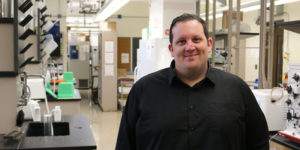EBRC Statement of Ethics in Engineering Biology Research
Engineering biology draws on advances in biology, chemistry, computer science, and engineering to understand, design, and construct biological systems and organisms. As with other science and engineering disciplines, engineering biology can impact society in powerful ways; therefore, the ethical, environmental, social, political, security, and safety-related issues arising from associated technologies require thoughtful and ongoing consideration. The Engineering Biology Research Consortium (EBRC) asserts that understanding such issues is a necessary part of research and must be considered from the outset of any project design, continuing through deployment and management of new technologies and/or products.
The EBRC further asserts that practitioners of engineering biology shall
i) seek to create products or processes that benefit people, society, or the environment;
ii) consider and weigh the benefits of research against potential harms;
iii) incorporate equity and justice in the selection and implementation
of engineering biology education, research, development, policy, and commercialization;
iv) seek to openly distribute the results of early-stage research and development;
v) protect the rights of individuals associated with engineering biology, including the freedom of
inquiry of researchers and the free and informed consent of research participants; and
vi) support open communication between engineering biology researchers and the stakeholders who might be
affected by research, development, and the deployment of new technologies.
Scientists and engineers in the engineering biology community must conduct research in a manner that is consistent with these principles in order to remain in good-standing in the community. They must also be cognizant of and communicate possible negative consequences and misuses of engineering biology research. Appropriate safeguards, informed by safety and security best practices, shall be implemented to prevent undesirable outcomes such as the development of biological or chemical weapons, environmental damage resulting from the inadvertent release of certain engineered organisms into the environment, and the use of engineering biology to perpetuate social inequalities.
The EBRC resolves to bring these principles and issues to the awareness of our community along with governmental and non-governmental organizations in the United States and around the world. We support bioethics education and training for researchers and encourage collaboration among scientists, humanists, and engineers to proactively address equity, justice, and environmental risks and benefits. We will advance the principles described here through transparent, democratic self-governance, support for appropriate public and State oversight and review, and the development, publication, and adoption of research best practices.
